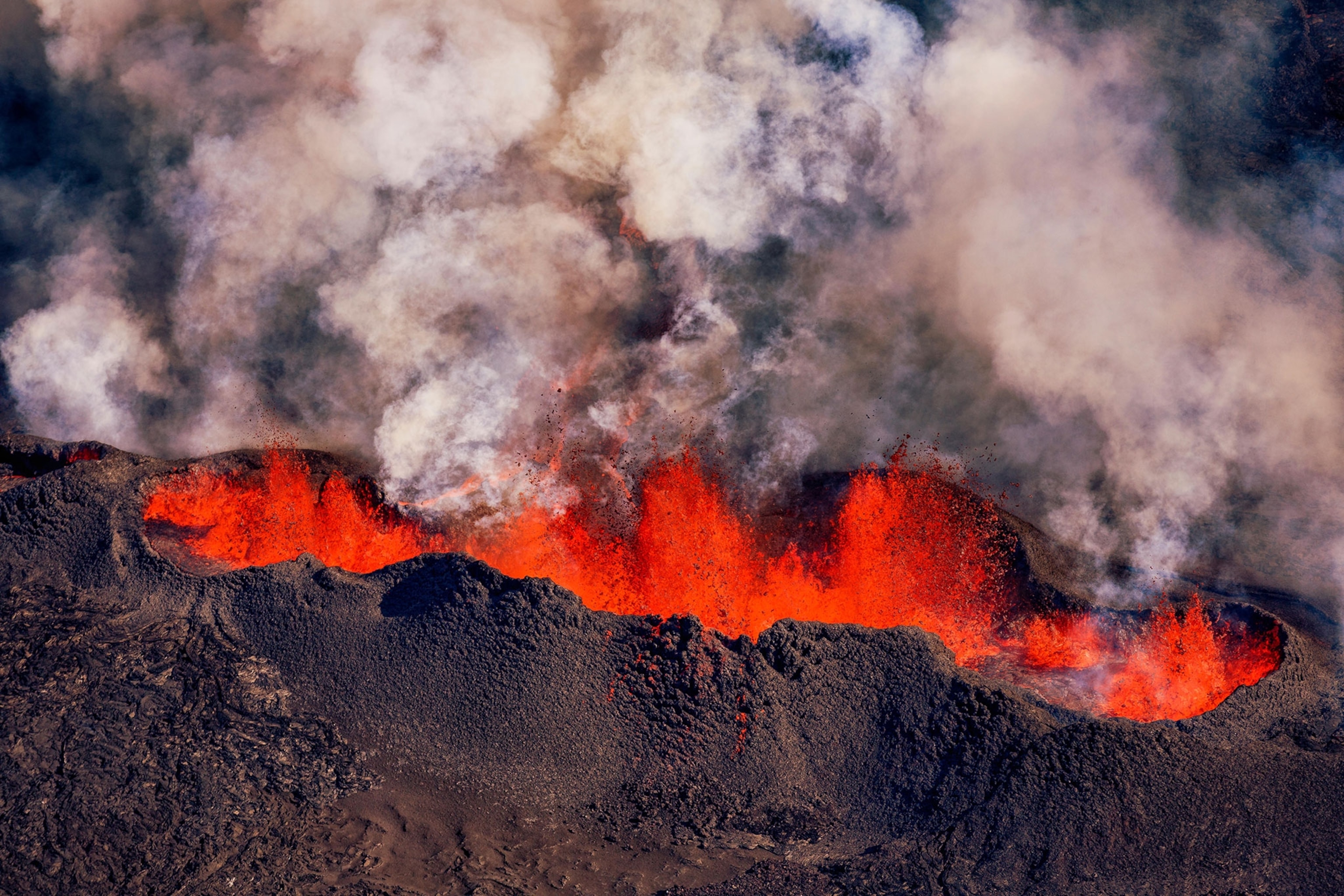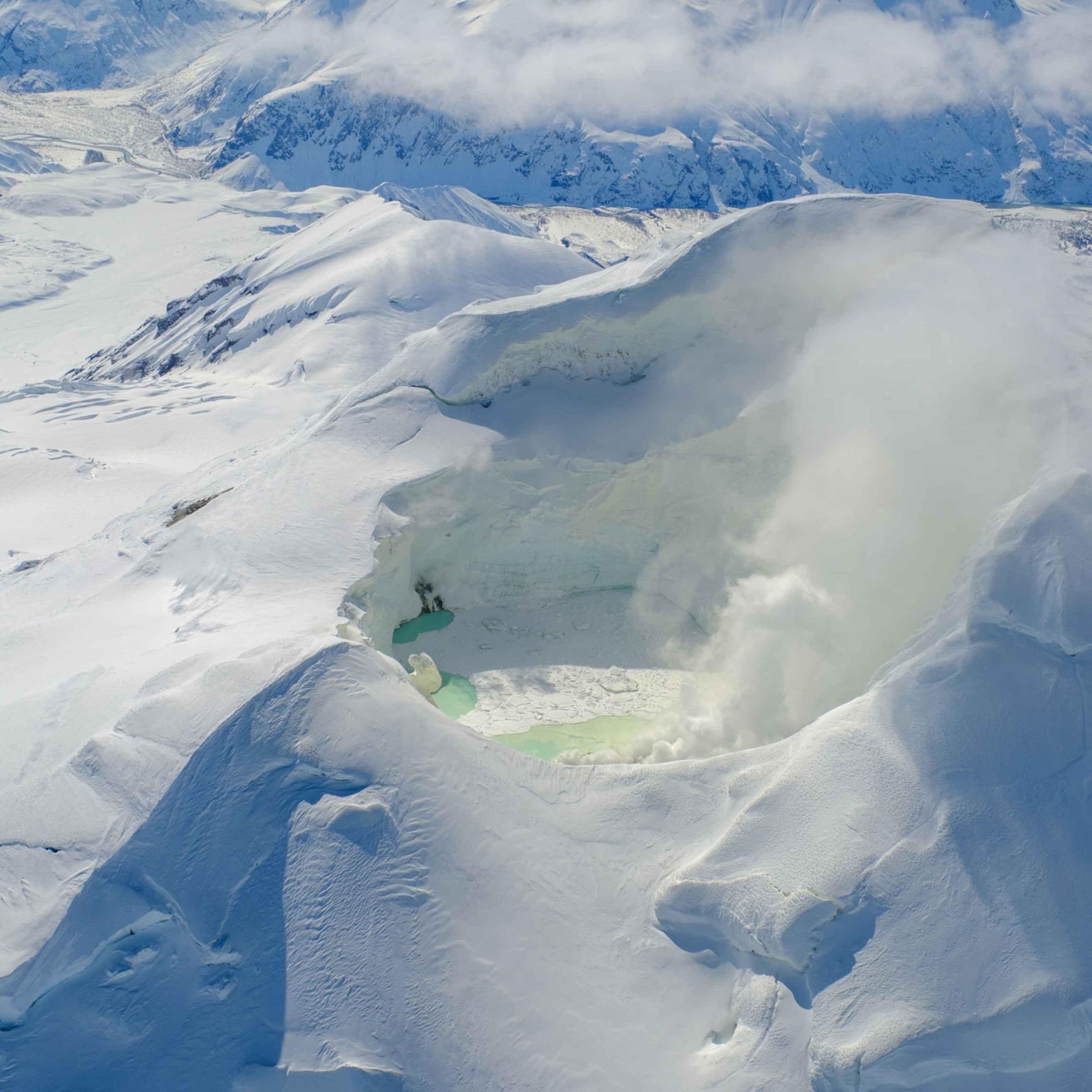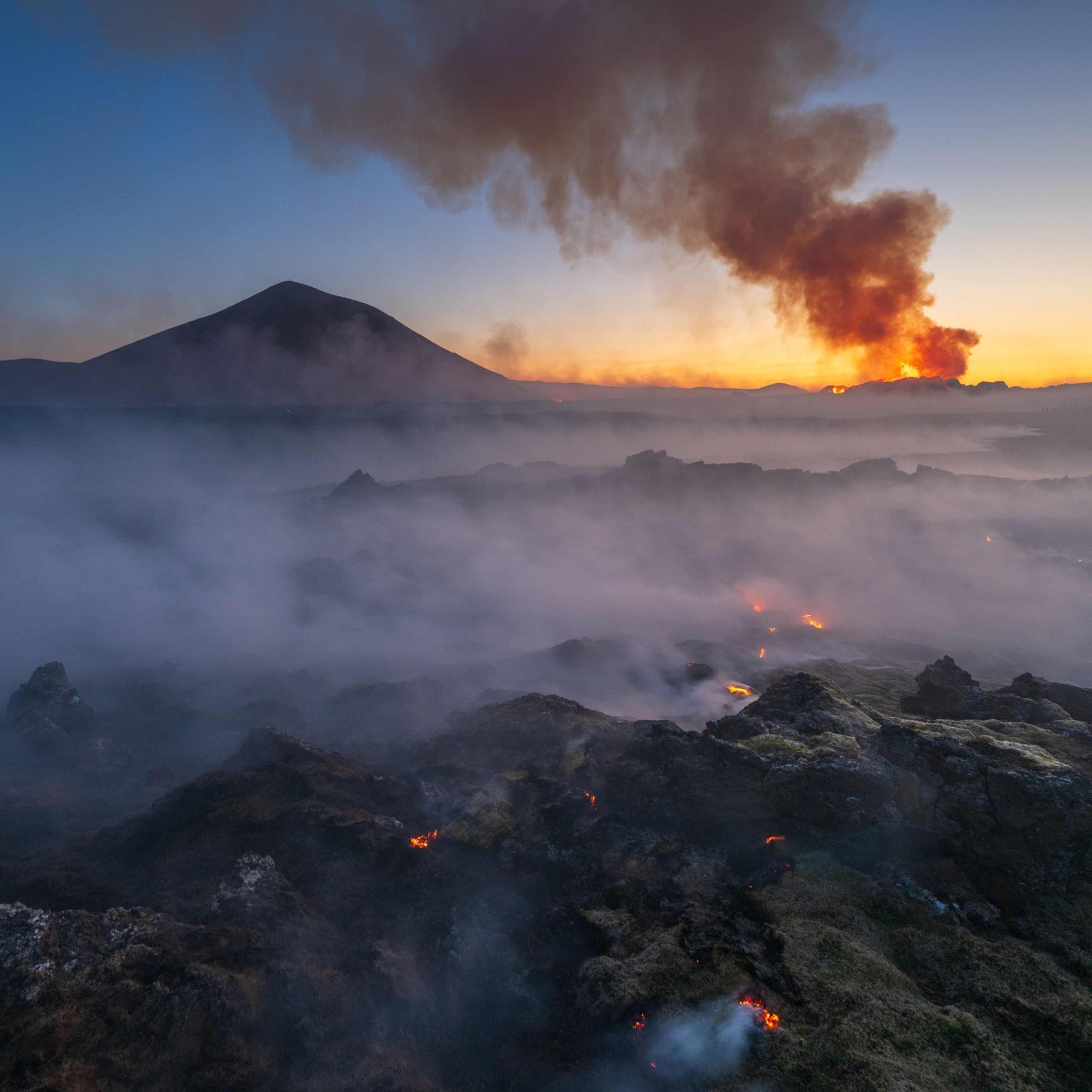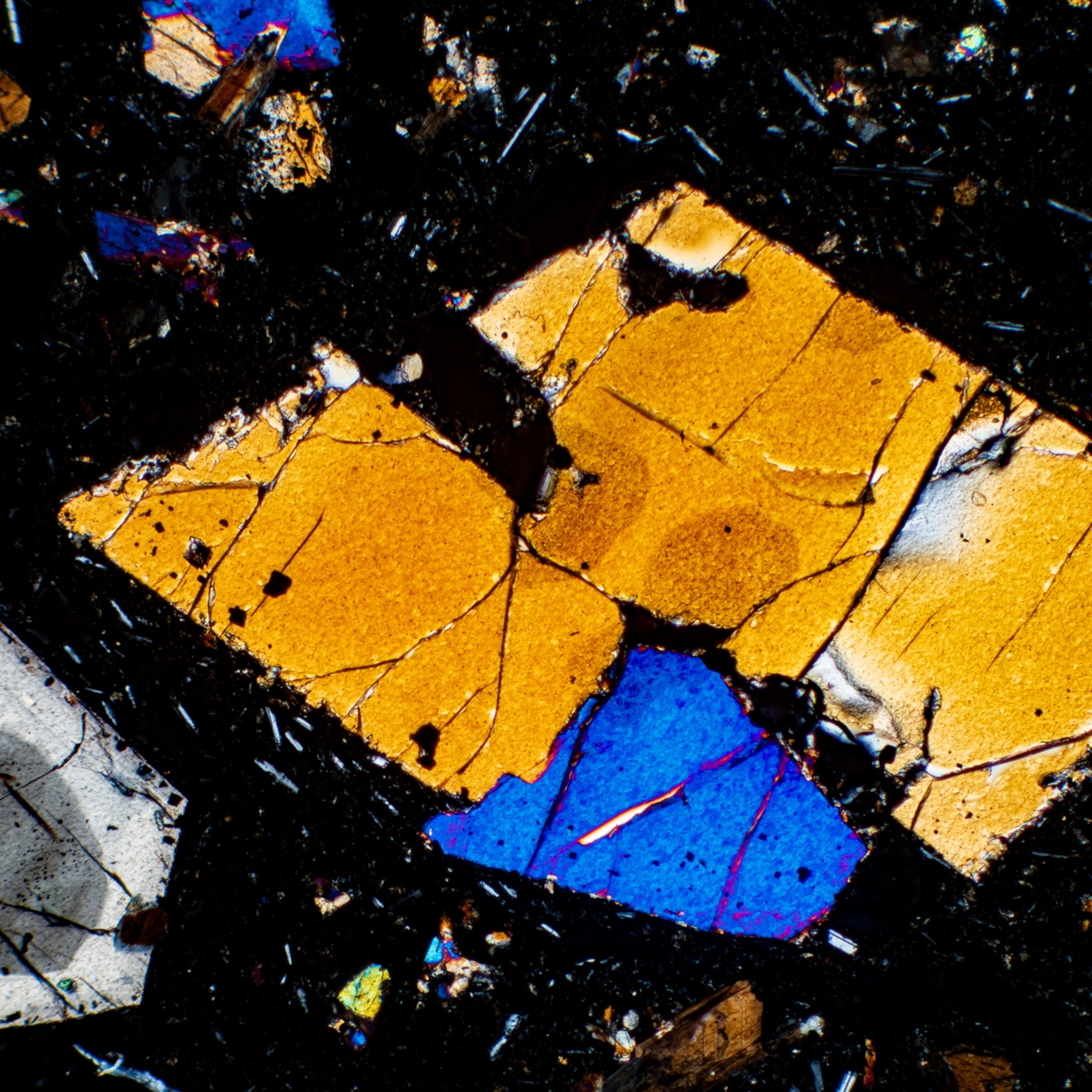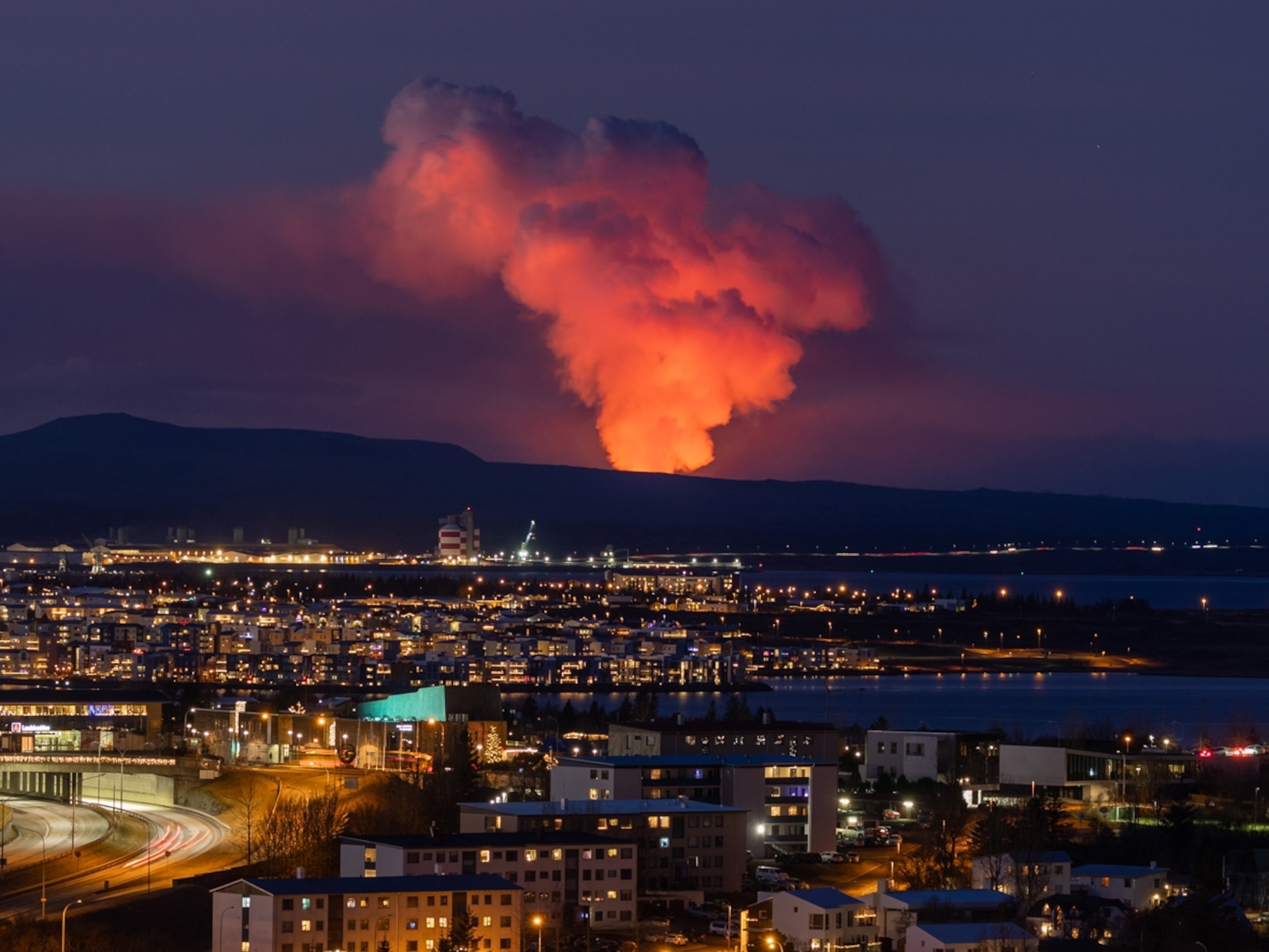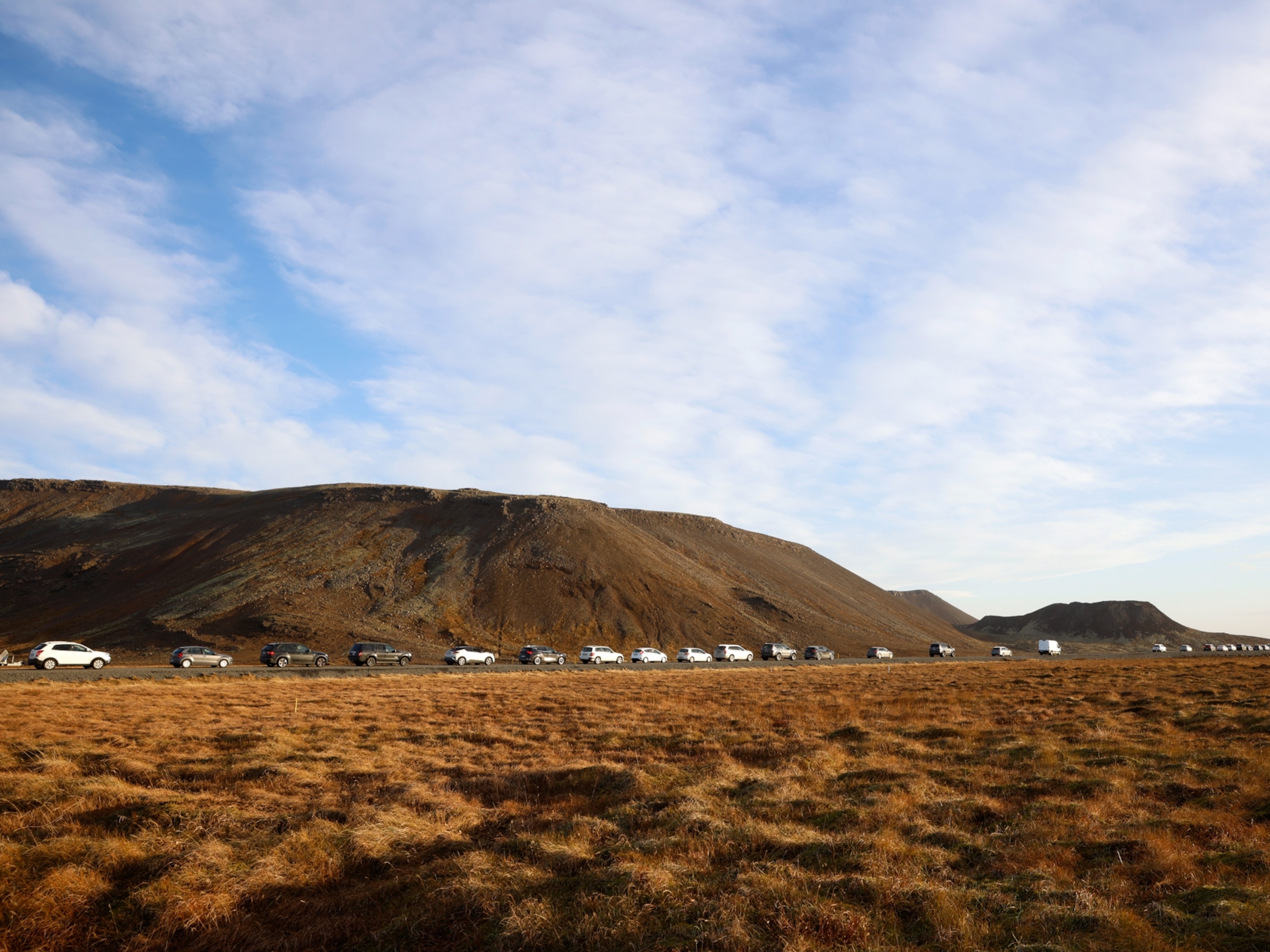Iceland, a land famous for its resplendent waters, glacial scenery, and bubbling hot springs, is not usually top of mind when it comes to breaking speed records. But the chilly island nation in the North Atlantic is also famous for its volcanological prowess, and as new research reveals, it once hosted the fastest magma ascent ever recorded for a basaltic volcano.
Reported in the journal Nature Geoscience, scientists examined the remnants of the 7,000- to 10,500-year-old Borgarhraun eruption in Iceland, and they found that the molten rock there rose 15 miles, from the base of the crust to the surface, in a mere 10 days.
That may not sound particularly speedy, and to be clear, it’s not technically the fastest magmatic rise known to science. That accolade belongs to the kimberlites, ancient explosive volcanoes that propelled mantle material to the surface at frankly ridiculous speeds of around 110 miles an hour, carrying diamonds from the depths far closer to the surface.
Still, the ascent is the fastest known for this ubiquitous family of molten rock—making it the magmatic equivalent of a sprinting cheetah. And clocking the speed of Borgarhraun’s magma may help with future forecasts of when similar volcanoes today are gearing up to erupt. (Find out why these are the most dangerous U.S. volcanoes.)
“Each volcano has a different story, has a different personality,” says Chiara Petrone, an igneous petrologist at London’s Natural History Museum who was not involved with the work. But while different soccer players may all behave uniquely during a match, they all follow the same basic rules—and that idea applies to volcanoes, Petrone says. As such, unspooling the history of this one freakish eruption may help scientists better understand others yet to come.
Volcanic time travel
To work out how fast ancient magma moved, scientists study crystals trapped in long-frozen lava. The physical and chemical idiosyncrasies that they feature in their final resting state betray the ways in which they formed. That means experts can effectively see their evolution through time, all the way back to their creation at hellish depths.
That’s often easier said than done, though. Magma is a complex mixture of solids, liquids, and gases that move about and often separate, all while experiencing a myriad of changing environmental conditions, says Jenni Barclay, a volcanologist at the University of East Anglia not involved with the work. That means crystals from a single eruption can contain signatures pointing to all kinds of wildly differing stories.
Fortunately for geologists, the Borgarhraun lava flow deposit, found in Iceland’s Northern Volcanic Zone, has such a wealth of well-preserved minerals that it clearly told an interesting story, and a team led by Euan Mutch, an igneous petrologist at the University of Cambridge, couldn’t resist diving in to find out more.
Mutch and his colleagues took a close look at a mineral named clinopyroxene, which has a composition that is sensitive to pressure. The point at which multiple minerals can exist simultaneously within the original magma also changes with pressure, and as pressure tracks with depth, these properties allowed the team to estimate how far below our feet the minerals were stored. (Find out about a seemingly dormant volcano that unexpectedly has magma simmering underneath.)
These mineralogical barometers indicated that the magma came from just above the boundary between the crust and the mushier mantle, or about 15 miles down. That’s only one part of the story, though—the researchers then needed to know how fast the magma rushed up to the surface.
During their magmatic journey, Borgarhraun’s viridescent olivine crystals also developed layers of rings around their central cores. The cores and their outer layers feature different chemical makeups, and while the olivines cook in the magma, the cores and layers exchange chemical elements. Petrologists have spent ages melting olivines in laboratories, so they know that the extent of this chemical exchange tracks with how long the crystals were stored in the magma before they erupted.
Mutch and his colleagues used Borgarhraun’s olivines to obtain a range of times for the magma’s ascent. As expected for a chaotic magma mixture, they varied greatly, from days to several weeks. Considering the magma’s properties, while making reasonable assumptions about the volcano’s plumbing and the magma’s migration, the team suspects that the complex soup clambered up 15 miles’ worth of volcanic piping in about 10 days.
Forecasting future murder blobs
Like other flavors of magma, Borgarhraun’s molten rock also contained dissolved carbon dioxide. As magma rises, the pressure on it drops, and the gas emerges from the melt as bubbles.
The gas can then separate from the magma, rush up the volcano’s rocky throat, and beat the magma to the surface. Alternatively, the gas can get stuck and emerge with the magma during the eruption. In this case, based on the properties and ascent rate of Borgarhraun’s magma, the carbon dioxide did make a break for it, but levels only spiked at the surface no more than two days before the eruption.
Scientists today regularly monitor volcanic vents for gas emissions, because they can indicate that magma is beginning to rise and depressurize, perhaps culminating in an eruption. But, had they been able to look for a surge in carbon dioxide prior to that ancient eruption, the Borgarhraun lava would have arrived with little advance warning.
Just like the impressive magma ascent speed, it’s possible that this ability to keep hold of carbon dioxide until the last moment may apply to other volcanoes, perhaps those in Iceland with similar magma types and carbon contents. No one wants an eruption sneaking up on them, so that might sound concerning.
Borgarhraun’s behavior won’t apply to volcanoes everywhere, though. As Mutch notes, volcanoes have contrasting magma and gas contents, meaning the way they belch their gases will be very different. Some volcanoes continuously unleash carbon dioxide, whereas others are far less gassy overall. (Here’s why the volcano that built Bermuda is unlike any other on Earth.)
And sometimes, Barclay explains, carbon dioxide may emerge at the surface because a shallow magma pond is easing off some volcanic indigestion, with no eruption involved. This range of possibilities and uncertainties is one of the many reasons why volcanologists today monitor multiple variables at volcanoes for troubling signs.
A major aim of the type of science in this latest paper is to match up these deduced magmatic properties with modern-day volcano observations. If, for example, likely magma speeds could be paired with seismic signals that indicate when an ascent is underway, it would give volcanologists a clearer timeframe as to when a volcano might unleash its potentially hazardous molten material.
But while this sort of science is making great strides, it has to make plenty of assumptions because there are still plenty of missing data, so matching the magmatic shenanigans of the past to present observations remains a huge challenge.
“It’s a shame no one was around 8,000 years ago with a seismometer,” Mutch says.
